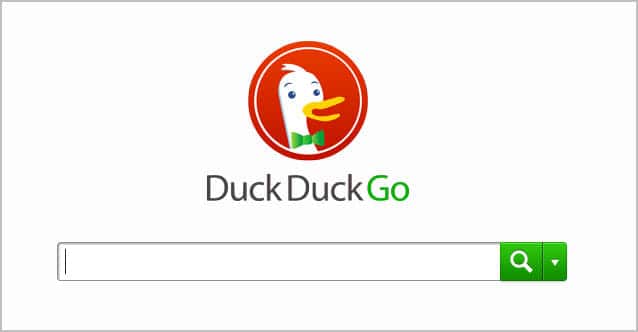The Internet Bubble, And How To Escape It

Many search engines are no longer tools that you use to find unfiltered results. Modern search engines like Google Search or Bing filter results for each individual user to display what they think are the most useful results for that particular user. This means that ten people who search for the same search phrase at the same time may get ten totally different results.
How do they do that? Search engines use a variety of factors, including a user's search history, likes, browser or location to filter results. While this may seem harmless at first, it has consequences that are hard to detect.
It first means that websites and services may get demoted in the results if the search engine thinks they are less useful to you. This in turn may limit access to information, as results are moved to the back pages. It may also mean that you will see more news and information that you agree with and less that you would disagree with.
Companies like Google are also pushing more of their own content into the results, either by favoring sites such as YouTube or Google+ in the results, or by plastering ads in so many locations that it becomes harder to distinguish them from the search results.
But it is not only the search engines that filter information for users. Facebook does it to, by looking at a user's likes and links that get clicked on. You may as a consequence see more news that some users post, and less that others post.
This algorithmic approach has its flaws, which many users may not realize immediately. Many may feel confirmed in their believes and ideas when the majority of information they see are tailored to their likes. The danger here is that these users will only see one piece of the puzzle, that they will miss out on information and that this leads to uneducated decisions.
Take a look at this Ted Talk video about the Filter Bubble concept:
Escape
It is not easy to escape the bubble completely. When it comes to search engines, you can move to engines that do not filter or personalize results.
This means no Google, no Bing, no Yahoo but search engines like DuckDuckGo or Startpage. But search engines are not the only ones that filter and personalize results.
Switching to another search engine is one thing, but what about sites like Facebook? You could obviously move to another social networking site or none at all, but most users are likely not willed to make that step. One option would be to contact the site owners or support to let them know how you feel about it, and that you want unfiltered news and information.
The thing is, if you want access to unfiltered information, you need to compromise. And this means letting services and websites know how you feel about the issue, and if nothing changes switching to other services that do not filter data in that extent.
Filters are not that far away from censorship and manipulation. And that's scary.
What's your take on the matter?
























@Jomama,
> I do wonder wtf happened in 2012. What changed. How did it change. I only noticed it by accident.
Ten years later what’s our analysis of this past decade on the Web?
@Martin, that could be an interesting article.
In my view what has changed the most is tracking. But I wouldn’t consider the state of affairs as globally negative.
I knew it happened in 2012. The great bubble was created in that year. Ever since then, there’s basically no freedom online. It’s become empty. Resultless. As unfortunate as it is, I do wonder wtf happened in 2012. What changed. How did it change. I only noticed it by accident.
duckduckgo does do fitler bubbling.
i use qrobe.it and have it set to use both bing and google as well as my default search engine in chrome. I’ve been using it for a few yrs now and am so use to using the advanced search shortcuts i don’t think i could ever change.
Just to be different I really prefer filtered results :)
If I ever, for whatever reason, would want “unfiltered” results, I would log out of my usual “browsing” Google account and log into another “less sensitive” Google account.
Martin, I tried the Duck and find that it is not a bad search engine. Limited, yes, but then I find that if I need to find something in/about other country, then the one I’m in, I have to change to Google of that country. I hope I’m making sense. :-(
Anyway thank you for Ghacks as it’s really informative and helpful. :-)
A frustrating issue. Google searches have become irritating. I usually find what I’m looking for on page 4 or 5. Social stuff is NOT what I’m looking for. I do NOT have a facebook account and do NOT want one.
I use Ixquick, but it’s a mixed bag. Sometimes very good results, sometimes nothing. History searches work pretty well, but computer issues, not so much. The privacy is nice! I’ve tried DuckDuckGo and found it disappointing, though it’s been a while and I hear good things about it. Guess I’ll give it another shot.
I used AllTheWeb – that was my favorite – until Google gobbled it.
How about blekko?
Pluralism, “the reciprocal necessity of the opposites” (Democrit the ancient Greek philosopher), democracy, debate, curiosity/interest for what is else, for what is different, for with what we do not spontaneously agree or go to.
I know friends who tell me they read regularly papers with opinions opposite to theirs, to understand, to know, to sometimes imagine humility and ask themselves: and what if I was wrong ?
This article is very very interesting. You can see in the video that it is not politically oriented, nor does it reflect a whatever haste : it calls only about our understanding, you know this root of human consciousness related to neither culture nor knowledge but to plain… openness.
Excellent post, thank you very much.
From this, how to deal with it ? Well, as described, search… by all means of search tools :) Strive to be free, it depends on no one but us, at least for what concerns our freedom of thoughts, when moreover we are in this civilization where freedom of expression is granted: it is not because it is granted that it should mean we have not to think before expressing. And to think right is my, your problem, that of no one else. .
Thank you Martin for bringing this issue. However as you said “Cookies are not the only way to track you, they can use your IP for instance, or try to get a unique ID from your browser and location.”
…. is there a way to confuse them, some shortcut? Using proxy servers, changing MAC address, way to change your browser ID?
The only way that I can think off is if all users would be using the same settings, e.g. all going through a proxy that would display one IP, one browser header and location to the search engine so that it is not possible to identify individual users anymore.
Even then you will still get only the information the search engine thinks is appropriate for you. The only thing you achieve by this is pretending you’re someone else. But the information is still filtered or manipulated if you like.
When using DuckDuckGo, for even more privacy you can opt for the HTML version rather than JavaScript. (https://duckduckgo.com/html)
Now if you want another privacy search engine that provides you with the google search results try Startpage. (https://www.startpage.com/)
I’m using DuckDuckGo since some time, it’s not perfect but usually good enough. I especially like the informative box at the top of the search results! About Facebook, it’s worrying, but I also worry a lot that Google+ is getting bigger… they are getting way too much information IMHO. I dumped also Google Reader, still using GMail though…
The answer is easy to fix. Don’t allow them to save cookies
Cookies are not the only way to track you, they can use your IP for instance, or try to get a unique ID from your browser and location.
Nevertheless, disallowing cookies is a start.
I’ve never heard of DuckDuckGo. Just tried it searching for some unique names. Doesn’t return as much as Google does. Any other search engines out there that’s good?
If you like Google w/o the monitoring, then try Scroogle:
https://ssl.scroogle.org/
Well, I don’t use Facebook. Never have, and hopefully never will.
I have a twitter account, but I have less than 20 tweets. What I used it for was to have it in my RSS Reader, and see what other people and sites were posting about, but then that got nerfed with an update, so I don’t use it anymore.
I’ve got the HTML version of DuckDuckGo as my Firefox default search as well as search bar. I got tired of Google’s shenanigans ages ago.
I hate the idea of anyone trying to control the web and control what I can see on it.
Then stop voting Democrat. All of this control over the internet, as far as the political arena is concerned is primarily a Democrat affair. They’ve been pushing for greater control over the internet and what people can access on it, and people like the owner of Google, Apple, and Microsoft have all cooperated in that regard.
You think that they’re doing this out of our own interests? They’re doing it because they’ve got some kind of deal going with politicians who want this kind of control over the information that you can have access too.
The fact that they keep doing this, and nobody seems to call them on it in any real way, and only some joe blog ever mentions it as something important proves the political nature of it. If people were not afraid of the political ramifications of speaking out against it, people would be doing so. As it is right now, only those who have no reason to be afraid or are ignorant of political ramifications and how it could affect them, bloggers, and internet commenters, are the only people who actually say anything about this type of censorship and complain about it.
Of course, people like Rush Limbaugh have mentioned it as something bad, but everyone’s told to ignore Rush Limbaugh.
Wow – what’s a Freeper (Free Republic knucklehead) doing on Ghacks? Typical of their simpleminded world view they think the whole planet is fixated on the US and it’s ridiculous political shenanigans. This is a German based website with a broadly international viewership FYI.
Both US parties are equally guilty of attacks on personal liberty, freedom of expression etc in many areas inc the internet. Blindly voting for either side then blaming the other side for all the country’s problems is typical of childish American political partisans.